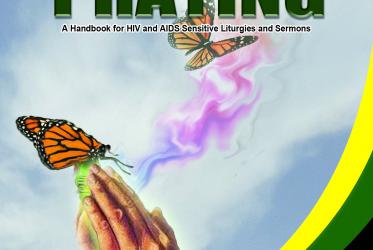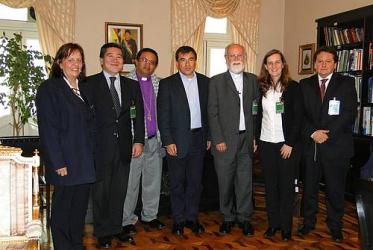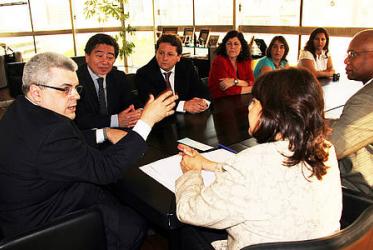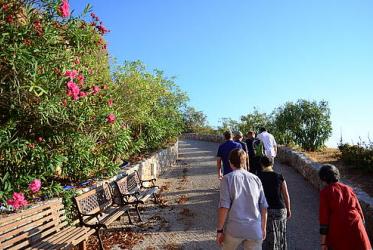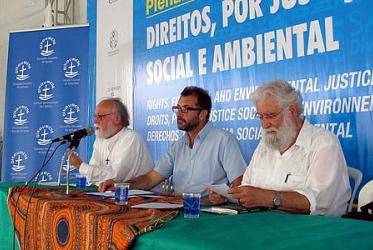Displaying 61 - 80 of 92
23 February 2015
Faith organizations assess COP 20 on the way to Paris
28 January 2015
Ecumenical organizations set to promote climate justice at COP 20
01 December 2014
Youth addresses community issues in a virtual conference
14 October 2013
Statement on global economy delivered to Bolivia
15 January 2013
Youth eco-justice efforts expand
12 October 2012
WCC working group plans next steps in climate advocacy
04 October 2012
WCC forum issues a call to promote “economy of life”
22 June 2012
WCC forum focuses on poverty, wealth and ecology
19 June 2012
Faith communities promote “safe spaces” to discuss health issues
19 January 2012
Challenge injustice and violence to find unity
07 June 2011
An environmental agenda for the churches
21 May 2011
